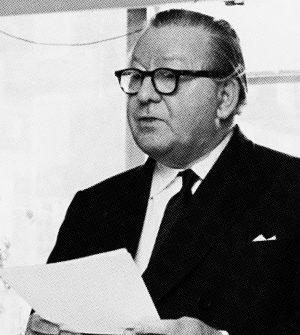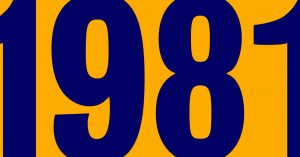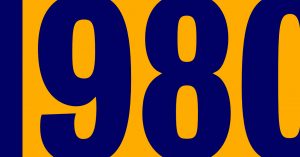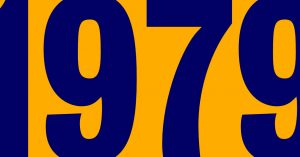ATV financial results: 1971
Lord Renwick on Associated Television Corporation’s 1971 results
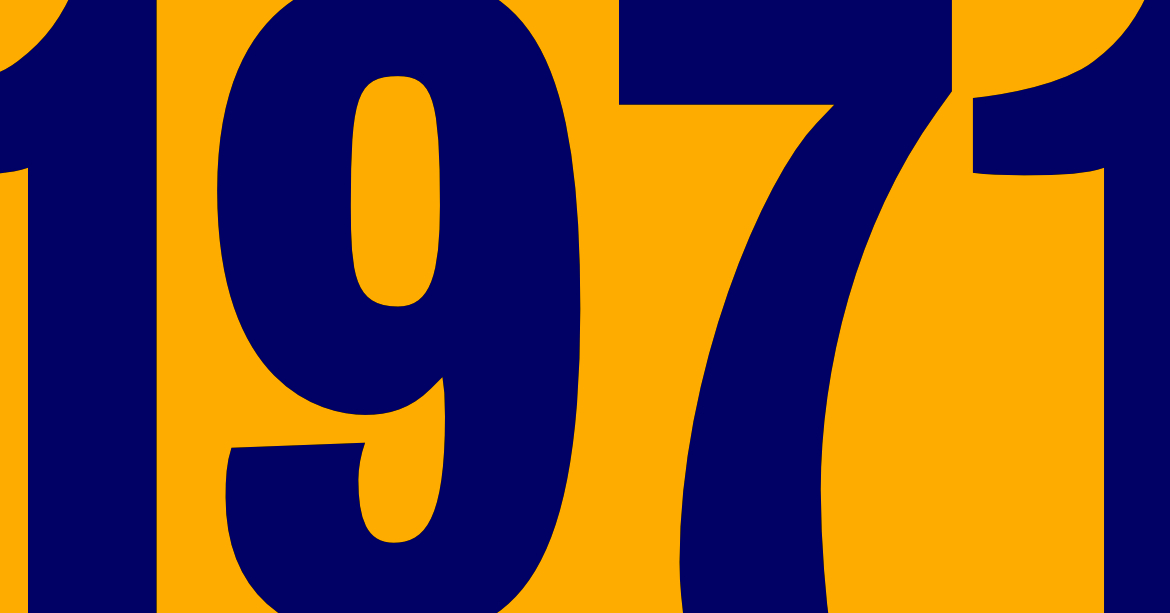
“Another highly satisfactory year…”
The Sixteenth Annual General Meeting of Associated Television Corporation Limited was held in London on 23rd September, 1971. The following are extracts from the Statement by the Chairman, Lord Renwick of Coombe, K.B.E., for the year ended 28th March. 1971:
This has been another highly satisfactory year; and one that holds great promise for the future.
For the third time in its history, your Corporation has been honoured by the Queen’s Award for Export Achievement.
I will now refer to the improved position in which your subsidiary Company, ATV Network Ltd., finds itself. During eleven of the twelve months under review the whole television industry was still labouring under the load of the high-rate Television Advertising Levy. In that single year ATV Network had, apart altogether from normal Corporation Tax, to pay a Levy of no less than £3,865,000 [£46.4m in today’s money, allowing for inflation – Ed]. It was to this level of forfeiture that I was referring in my last Statement when I said that if the rate of Levy were not reduced, Independent Television would no longer be commercially viable.
I therefore wish publicly to express my thanks to Lord Aylestone and the Authority for all that they did in presenting the facts of the case to the Government. It is not too much to say that the resultant action of the Minister in amending the scale on which the Levy is extracted from the advertising revenue of the Companies prevented inevitable financial collapse within certain sections of the industry.
Bearing in mind the current buoyancy in advertising revenue and the reduced rate at which the Levy is now operative, it is possible to view the future of the Network Company with a degree of confidence that would have been quite unthinkable a year ago.
Transdiffusion analysis
The 1970 general election was expected to return Labour to power. Prime Minister Harold Wilson was personally popular in a way that the stilted and awkward Tory leader Edward Heath was not. The government had enfranchised 18-21 year olds, a group of baby boomers that could be expected to vote Labour. The wobbling economy had stabilised somewhat, with the painful decisions of the past few years – like devaluation and a Prices and Incomes policy – finally bearing fruit. The polls had all shown Labour in the lead, often by quite a margin, with the exception of one – the Conservative’s own polling organisation, the Opinion Research Centre.
The result was therefore something of a shock: the Tories got almost a million more votes than Labour, and that translated into a rise of 77 seats (with Labour losing 75) and a Conservative-Unionist majority of about 30.
The change in government brought in someone in charge of broadcasting who actually knew something about television – Christopher Chataway, formerly of ITN – as the minister responsible. He was in favour of commercial broadcasting, although not a particular fan of the ITV-2 idea, and certainly didn’t want to see ITV humiliated by a punishing Levy on sales any more. But the money the Levy made was very useful, and not unpopular with voters, so the hoped for abolition didn’t happen. But it did get reduced to a point that ATV could live with it.
And Chataway had an idea that would see commercial broadcasting expand and lead to a degree of competition in the sector: a copy of the ITV regulation model extended to a new breed of local radio stations across the country.
Broadcasting Hours
It is a source of further encouragement that the awaited permission for further broadcasting hours cannot now be long delayed. ATV Network is already fully equipped to provide the programmes. All that is needed is the Minister’s approval.
Also, at the moment, only the BBC offers a dual service. There is no reason whatsoever why this should be so. It is wholly within the competence of the industry as it is at present constituted to provide ITV 2, and your Directors will continue to press for this highly desirable extension of the national broadcasting service.
Film Production
The current schedule of production is the strongest in the Company’s history and overseas sales — notably to the American networks and to Australia — have reached a level never previously achieved.
ATV Centre
The ATV Centre in Birmingham, of which the Network studios occupy a third of the total site area, is in itself a major piece of civic development. It represents an investment in excess of £12 million [£144.2m]. Building operations have throughout been most commendably on schedule, and the whole complex of office block, hotel, exhibition hall, restaurant and shops will be revenue earning by 1973.
Stoll Theatres
ATV is proud of its position in the theatrical world. Stoll Theatres under the chairmanship of Mr. Prince Littler has enjoyed a most excellent year. In total, half-a-million more tickets were sold at the box office than in the previous year and the profit figure improved by £96,000 [£1.2m].
Music
ATV is equally proud of the positions which it occupies in the world of music and music-publishing. The new management of your wholly-owned subsidiary company, Northern Songs, is certainly to be congratulated on its success. Moreover, the jointly-owned Company, ATV-Kirshner, has now established a worldwide organisation that is trading profitably in 14 countries.
Similarly, Pye Records which has steadily earned an increasing share of the disc market shows continuing improved results. The profit figure for music and records of over £1,800,000 [£21.6m] is substantially higher than earlier it had been felt safe to estimate.
Audio and Video Cassettes
Looking to the future when the use of audio cassettes will become wide-spread both in the home and in the car, your Board felt it wise to acquire the whole share capital of Precision Tapes Ltd., previously owned only 50 per cent by the Group. Already the sales of cassettes produced by this Company are mounting most encouragingly.
Again, in order to keep level with technical innovation your Corporation has entered the rapidly expanding market for video cassettes — the device which enables programmes of the viewers’ own choice to be shown on the home television screen. The potential here is enormous and, to exploit to the full the global opportunities which the video cassette offers, ATV has entered into 50-50 partnership with one of the three great American networks, the American Broadcasting Company. The entire programme resources of entertainment, information and education of both organisations have been pooled. It is an acknowledgment of the unique standing of this new Anglo-American enterprise that the National Theatre Company in London should have granted it the exclusive video cassette rights of the National Theatre productions.
Finally, for the future development of the Corporation, ATV has announced that it will seek to be active in Commercial Broadcasting as soon as legislation permits. ATV will both apply for a licence in its own right and in conjunction with newspapers, and will be ready and equipped to supply full programme services to other operators.
Summary
The Group, now widely diversified within the whole field of entertainment as well as in property, is both more securely based and more capable of further development than ever before in its history.
It is here that I must pay tribute to the one man who more than any other has made it so. When, for the third time, the Corporation was honoured with the Queen’s Award for Export Achievement, it was once more recognition of the fact that Sir Lew Grade is the master-salesman of the entire television industry. But it was more than that. It was also a recognition of the fact that Sir Lew is television’s supreme impresario. Indeed, his singleness of purpose, his energy and his farsightedness are displayed in every aspect of the Corporation’s activities.
Management and Staff
I will close by saying on behalf of the Board how grateful I am to members of Management and Staff at all levels in Birmingham, Elstree and London, as well as to our Corporation colleagues abroad in New York, Toronto, Sydney, Paris and Lausanne.
| COMPARATIVE FIGURES | 1970 – £’000 | 1971 – £’000 | 1970 £m + inflation | 1971 £m + inflation |
|---|---|---|---|---|
| Total Group Turnover | £36,713 | £37,631 | £440,923 | £451,948 |
| Net Television Advertising Revenue | £13,819 | £14,255 | £165,966 | £171,203 |
| Less: Levy | £4,534 | £3,865 | £54,453 | £46,419 |
| Group profit before tax | £5,301 | £4,914 | £63,665 | £59,017 |
| Divident cost | £2,709 | £2,708 | £32,535 | £32,523 |
| Profit after tax and outside shareholders’ interests | £3,860 | £4,319 | £46,359 | £51,871 |
| Earnings per “A” Ordinary 25p stock unit | 10.37p | 11.54p | 124.54p | 138.60p |
| Total shareholders’ funds | £26,350 | £27,936 | £316,464 | £335,511 |
About the author
As a public company with shareholders, ATV was required to publish a detailed Annual Report at the end of each financial year. It was common to also publish a Chairman's Statement, summing up the report in more readable language.


